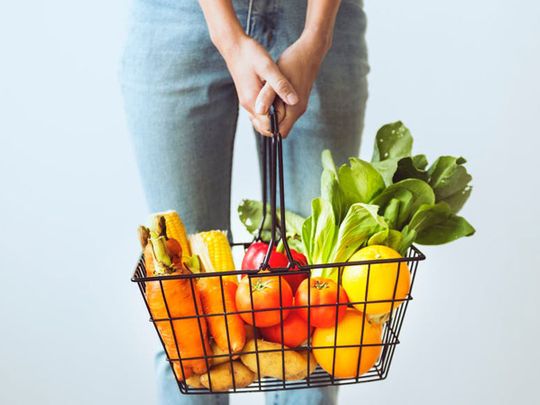
Dubai: Buying local is the in thing to do.
More than 30 per cent of residents in the UAE have shifted their buying preference to locally sourced food produce. Of course, the weeks where they were stuck to their homes had influence on these decisions, but the momentum for fresh and organic from local outlets was building up.
UAE nationals (at 37 per cent) are more likely to source local, followed by Asians (33 per cent), Arab expats (31 per cent) and those from the West (23 per cent), according to findings from a survey commissioned by Kearney, the consultancy.
Not just on the sourcing
Changes in consumer behavior were not confined to sourcing preferences. Nearly half of those surveyed – by YouGov – say they have reduced food wastage. (It’s also an age thing, with more than half of those over 45 years are now throwing away less food compared to 38 per cent who did among the young.)
Cutting down on all fronts
Saving on utility costs too is high priority these days, even when confronted with the realities of a harsh summer. A quarter of those polled had reduced their electricity and water consumption, with those over 45 years (at 32 per cent) saving more compared to those between 18 and 24 (22 per cent). And 14 per cent made more of an effort to shop from brands with a robust environmental agenda.
A cost to it
Not a surprise, but those with higher income were more supportive of eco-friendly brands, which more often than not carry higher prices. Those earning between Dh20,000-Dh40,000 supported such brands twice as more (27 per cent) as those with incomes of up to Dh5,000 (12 per cent).
Less inclined
Changes are showing up even in vehicle usage, and often with surprising results. While 28 per cent in the survey reduced the use of personal cars in recent months, those with an income over Dh40,000 were more likely to do so (at 44 per cent) as compared to those with an income of up to Dh5,000 (16 per cent).
In a statement, Andreea Zugravu, Principal at Government and Economic Development at Kearney Middle East, said: “The sanitization drive and social distancing measures have allowed people to break away from the ‘norm’ and connect more with their families, friends and communities. These positive family, societal and sustainable behaviors have the potential to shape the right community values for the next 50 years - if maintained - post-pandemic.”








